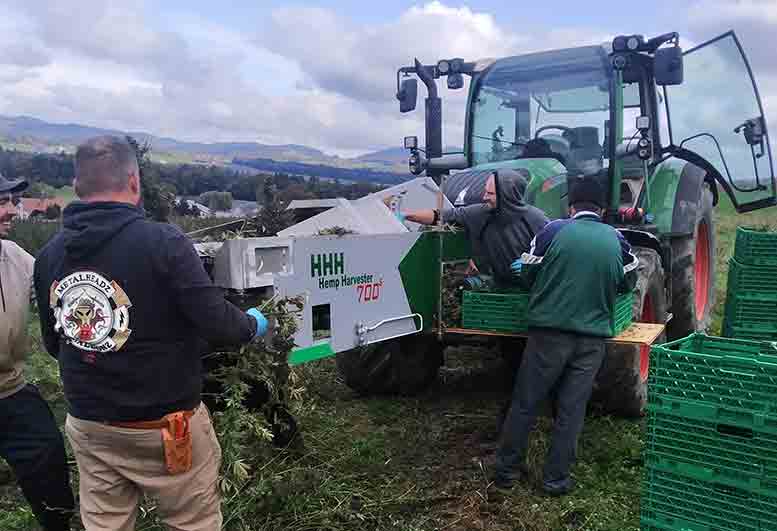Hemp cultivation seeds can be produced and marketed in Switzerland beginning Jan. 1 after the government removed restrictions in the country’s agricultural seed law.
“The Federal Office for Agriculture (FOAG) enables the production and marketing of seeds and seedlings for the production of so-called ‘CBD hemp’ in agriculture,” the agency said in a statement announcing the changes to the seed law, which is guided by the Federal Department of Economic Affairs, Education and Research (WBF).
Despite the reference to CBD, the change affects all industrial hemp, according to the FOAG statement. “In order to enable the development of corresponding cultivation systems and plant propagation methods in agriculture, all provisions on hemp in the WBF’s seed and plant material ordinance were repealed,” the agency said.
<1% THC
Hemp was made subject to the seed law in 1998 in order to differentiate its industrial use from narcotic cannabis, which is strictly limited and tightly regulated in Switzerland. While hemp did fall under provisions of Switzerland’s seed law, it was not previously subject to the country’s narcotics laws.
Switzerland, which is not a member of the European Union, is an outlier on the continent, having set its THC limit for industrial hemp at a full 1.0% in 2011. The limit in EU countries is expected to be lifted from 0.2% to 0.3% after the European Parliament signed off on that change in October 2020.
“The limit value for the intoxicating cannabinoid tetrahydrocannabinol (THC) introduced in 2011 in narcotics law allows for a sufficient delimitation of the prohibited (narcotic) cannabis,” FOAG said in the statement.
Countries in Latin America, Africa and Asia have also set THC limits for hemp at a full 1.0%, challenging a generally observed 0.3% international limit. A proposal to adopt the 1.0% barrier was also recently floated in Congress in the United States, which set its THC limit at 0.3% in the 2018 Farm Bill, which legalized hemp federally.
Switzerland’s edge
The higher allowable THC limit for hemp gives Switzerland an edge in CBD production because CBD in hemp rises in proportion to THC.
Hemp is farmed in Switzerland primarily for smokable buds and as biomass for CBD extraction – produced from bushy crops that are more like marijuana plants in appearance.
CBD and CBD-rich cannabis are not scheduled narcotics in Switzerland, but are not freely available as medicine in pharmacies without a prescription. CBD-enriched food supplements, smokable buds, and other products are on the market under quality control guidelines.
Revised laws expected
Marijuana is regulated in Swiss narcotics laws and is generally prohibited. Therapeutic THC and cannabis preparations containing more than 1% THC require a special permit from the Swiss Federal Office of Public Health.
Industry observers say that with Swiss narcotic law undergoing revision, THC-rich cannabis flowers and preparations are likely to be made available by prescription, but without additional special permits now required of patients. Sativex, a mouth spray based on a 1:1 THC to CBD ratio that is used to treat Multiple Sclerosis and other spastic conditions, is the only approved high-THC-content medicine on the market in Switzerland. Sativex is made by UK-based GW Pharmaceuticals, which is also the maker of Epidiolex, the first cannabis-derived prescription drug to gain federal approval from the U.S. Food & Drug Administration.

